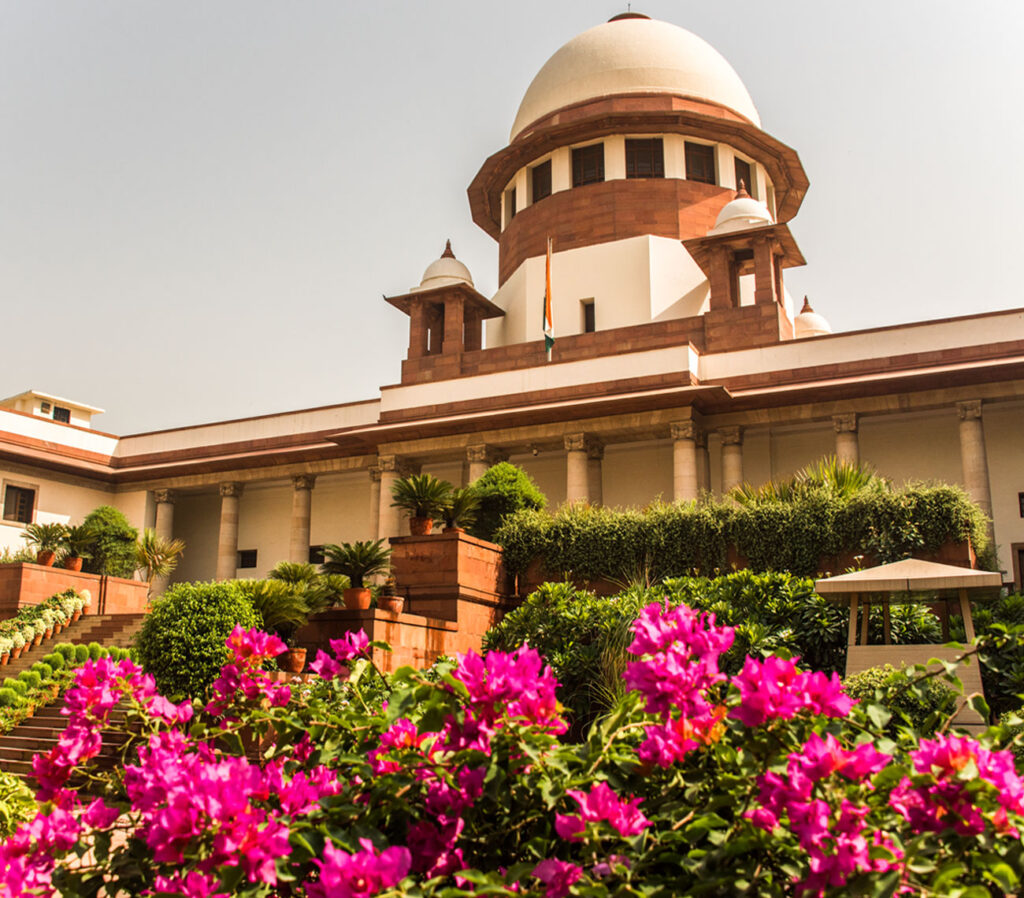- New Delhi, Dec 8.
The Supreme Court told the central government on Thursday to tone down public criticism of the collegium system and stick to the existing system of appointing judges as the government reopened the issue of revisiting the process.
The development came days after the Union Law Minister and the Vice President attacked the existing collegium system which was evolved by the judiciary to retain its independence.
A three-judge bench, led by Justice Sanjay Kishan Kaul, expressed concern over ministers and other constitutional functionaries publicly speaking out against the collegium system.
The bench, which also comprised Justices Abhay S. Oka and Vikram Nath, advised the AG to counsel the government to rein them in.
“This may have major ramifications. A section of people may then say we will choose to abide by some laws we like and not abide by those we don’t like,” Justice Sanjay Kishan Kaul observed. “This will lead to a breakdown of the system.”
The bench said that under the constitutional system of checks and balances prevalent in Indian democracy, the court is the final arbiter of the law.
The bench also asked the government to implement the law as it stands and clear the names recommended by the CJI-led collegium for appointments. The court, however, did not close the door on any dialogue on the issue with all stakeholders.
You can change the law, revisit the issue, Justice Kaul observed. But that would again be subject to judicial review. The top court gave AG R. Venkataramani a week to get back to the court with a solution to the stalemate which has raised the ugly spectre of an executive-judiciary standoff.
As per successive court rulings delivered earlier, the CJI, as the patriarch of the judiciary, enjoys primacy over all appointments to the top court and the High Courts. The government wants to have the last word on all such appointments.
Its last attempt to do so by enacting the NJAC (National Judicial Appointments Commission) was struck down by the top court. The government then tried to wrest control over the process by reframing the procedure dealing with the appointments.
In 2017, the top court rejected an attempt to foist on the court with a clause that would have allowed the government to shoot down any name on the grounds of national security. The court has since treated the MOP (Memorandum of Procedure) issue as closed.
The government wants to revisit the MOP as well. The AG said that the MOP was no way final and that the government wanted to have a dialogue on ironing out difficulties in the process.
The government has been sitting on a neat pile of 90 odd names on grounds such as names were not recommended well ahead of the posts falling vacant, the process is not transparent etc.
Some of these date back to 2016. At least 10 names, reiterated by the collegium for a second time, have not been appointed either. Under a convention, the government is expected to appoint all names reiterated a second time.
The AG claimed that there were earlier precedents in which the collegium has dropped names after it was sent back by the government a second time. He cited these to back the delay in not appointing the recommendations a second time.
The majority government at the centre has since taking over split composite recommendations of the collegium to selectively clear names recommended by the collegium.
The top court has sidestepped this challenge to its authority by being pragmatic on some names so far. But has spoken out on this while dealing with multiple pleas objecting to lack of timelines in clearing such appointments.
At the last hearing, the bench had expressed concerns over the delay in appointing names. Today too, Justice Kaul dismissed the government’s objections to the names recommended for appointing as judges as mere “blame-game”.
If you take time, you are considering the names and if we take time, we are delaying (the process)? Justice Kaul said.
He cited several constraints faced by the collegium, including reluctance of competent counsel to throw themselves to public scrutiny by agreeing to become judges, etc, to justify the delay in making appropriate recommendations.
In his turn, the AG cited observations, by former CJI Ranjan Gogoi and Justice Jasti Chelameswar, in the 2017 contempt case involving Justice C.S. Karnan of the Calcutta High Court to argue that there was a need to revisit the process of appointing judges.
The judges had in a separate but concurring opinion said that the case highlighted “the need to revisit the process of selection and appointment of judges.” Justice Karnan had made several controversial statements against the collegium and claimed victimisation due to his caste, incurring contempt. He was sentenced to a jail term in this context.

